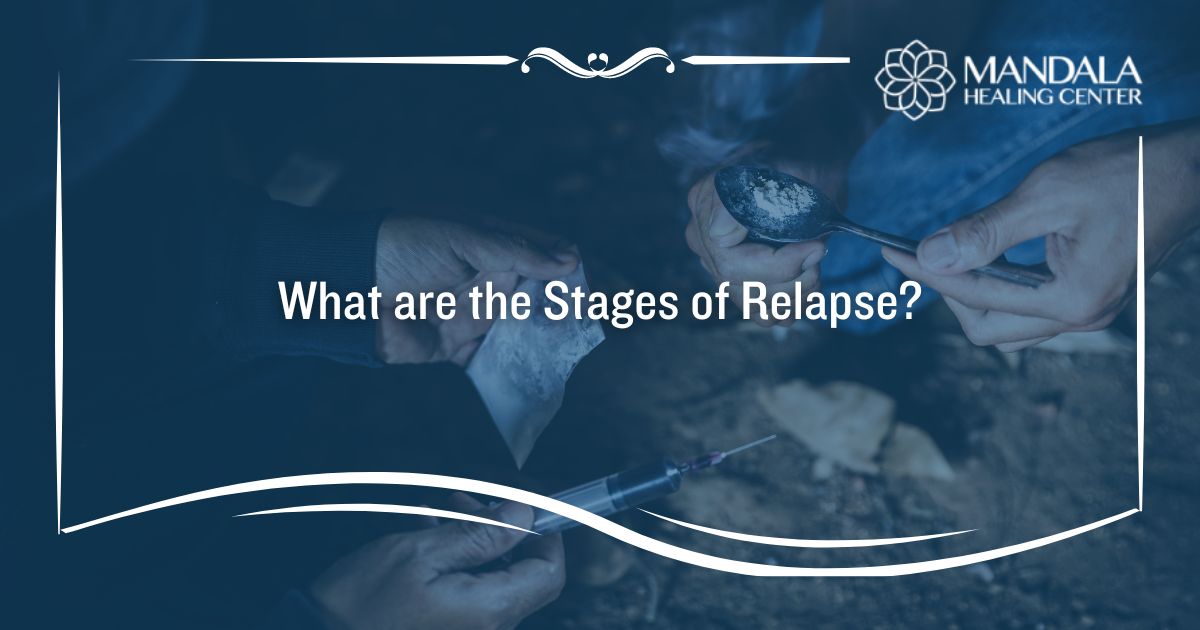Addiction is a chronic and progressive disease that must be maintained long-term to avoid a relapse. According to the National Institute on Drug Abuse (NIDA), the addiction relapse rate is between 40 to 60%.[1]
Since relapses are so common, it is important to be aware of how they occur. While most people think of relapses as only being the physical action of abusing drugs or alcohol, this is not necessarily true. In fact, most people believe relapse occurs in three stages: emotional, mental, and physical relapse.
The first stage of relapse is emotional, often characterized by experiencing negative emotions more frequently. While it is possible to overcome an emotional relapse before it develops into something more, the next stage is referred to as a mental relapse. If you are experiencing a mental relapse, that means you are thinking about using drugs and alcohol while still holding onto some desire to remain sober.
Of course, the last stage of relapse is physical, which means it involves using drugs or alcohol after a period of abstinence.
What are the Three Stages of Relapse?
While many people define relapse as returning to substance abuse, experience shows that relapse is a longer process than one simple action. It typically happens in three phases.
The three stages of relapse include:
1. Emotional Relapse
The first stage of relapse is emotional. During this stage, you most likely aren’t even thinking about abusing drugs or alcohol yet. Instead, you are experiencing frequent negative emotions that are pushing you one step closer to thinking about abusing substances.
Red flags that indicate you are in an emotional relapse include:
- Not having fun in your sober life
- Bottling up your emotions
- Isolating yourself from friends and family
- Participating less in support group meetings
- Experiencing frequent mood swings
- Dealing with irritability or feelings of intolerance
As your emotional tension builds, you become more likely to consider abusing drugs to cope. As a result, you must pay attention to your emotions and seek support rather than holding them in or attempting to ignore them.
2. Mental Relapse
The next stage of relapse is mental. If you fail to address the emotional relapse you experience, you will begin to think about using drugs or alcohol to cope.
Mental relapses are characterized by an inner battle, where one part of you wants to stay sober but the other part is daydreaming about escaping from your emotions through substance misuse.
The signs of a mental relapse include:
- Experiencing frequent cravings
- Fantasizing about or romanticizing substance abuse
- Only remembering the good parts of drug and alcohol use
- Minimizing past consequences of substance abuse
- Thinking of ways to rationalize drug and alcohol use
- Starting to spend time with people who use substances
- Believing you no longer need to attend recovery support groups or therapy
If you are in this stage of relapse, you can still prevent yourself from advancing to the physical act of abusing drugs. Instead of ignoring the thoughts you are having, talk to a trusted friend, sponsor, or therapist about them. Begin participating in your recovery maintenance techniques again, like going to 12-step meetings or attending events with alumni from your treatment center.
3. Physical Relapse
The last stage of relapse is physical, which means you will begin abusing drugs and alcohol once more. This is likely to occur if you do not take action when you are experiencing the emotional or mental stages of relapse.
If you experience a physical relapse, you mustn’t feel defeated. Oftentimes, relapse is a part of people’s journey. The only thing that matters is that you get back on track, whether this means going back to rehab or simply doubling down on your 12-step meetings and therapy sessions.
How Can You Prevent Yourself From Relapsing?
There are many activities and coping mechanisms that you can make a part of your daily life to prevent yourself from relapsing. One of the most important relapse prevention tools is participating in a recovery community. Whether you join a 12-step program or want an alternative community like SMART Recovery, you need to be actively participating, sharing your story, and building relationships with others in sobriety.
Other ways to prevent relapse include:
- Going to therapy regularly
- Staying on top of managing any mental health conditions you may have
- Sticking to a daily and weekly schedule to keep yourself busy
- Staying connected to friends and loved ones who support you
- Avoiding triggering situations like parties with alcohol or attending bars
- Maintaining good self-care practices like meditation, yoga, or journaling
- Eating healthily and having a good sleeping routine
While staying on top of your sobriety can be challenging at times, it is worth it. As drug overdose rates continue to rise each year, staying sober could be the difference between life and death.
Find Help for Drug Addiction and Alcoholism
If you or a loved one has recently suffered from a relapse, Mandala Healing Center is here to help. Our compassionate and intensive addiction treatment programs can offer you the tools and skills you need to achieve long-lasting sobriety.
To learn more about our relapse prevention therapy and recovery programs, contact us today.
References:
- The National Institute on Drug Abuse (NIDA): The Science of Addiction Treatment and Recovery, Retrieved January 2024 From https://nida.nih.gov/publications/drugs-brains-behavior-science-addiction/treatment-recovery












